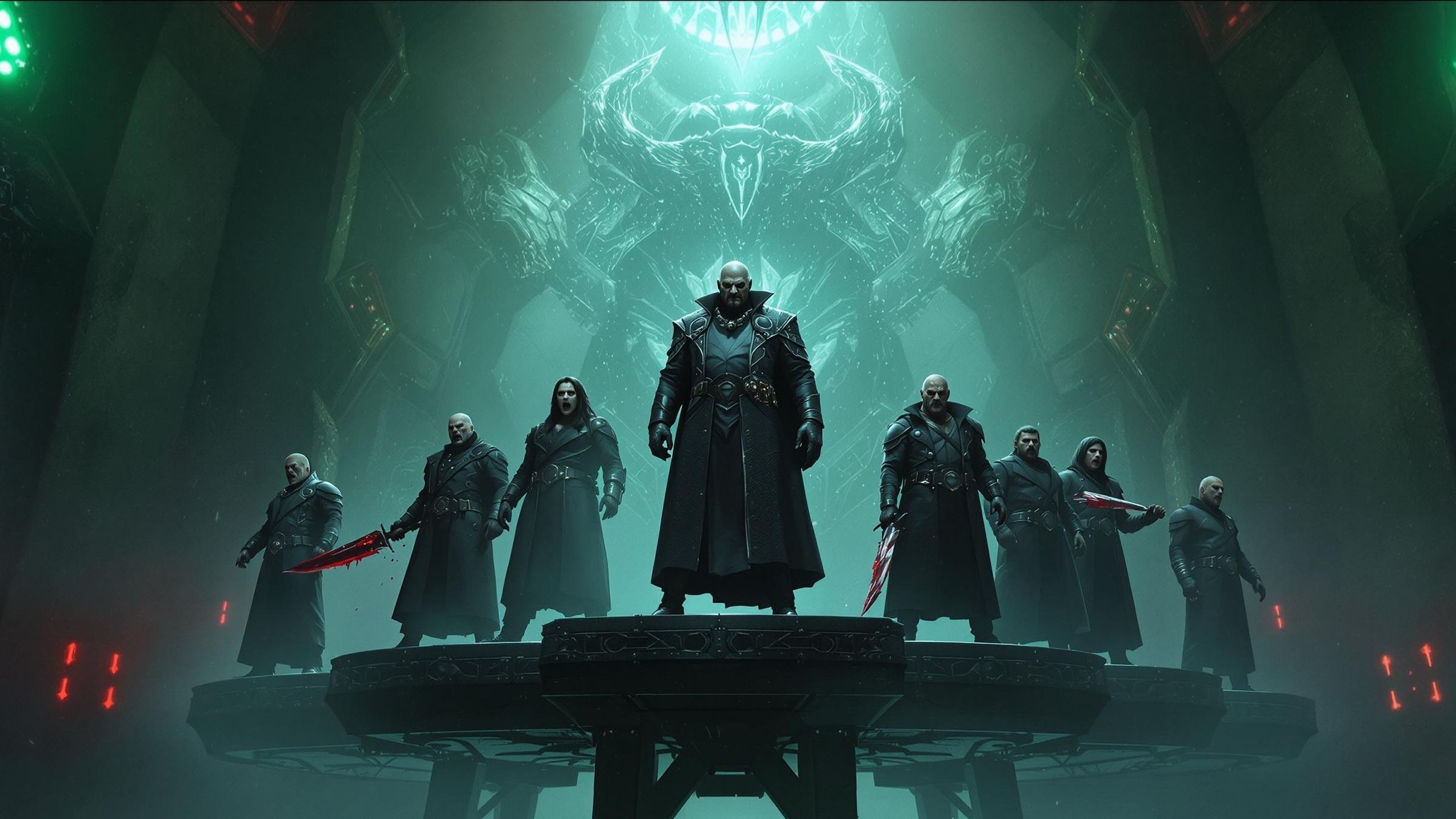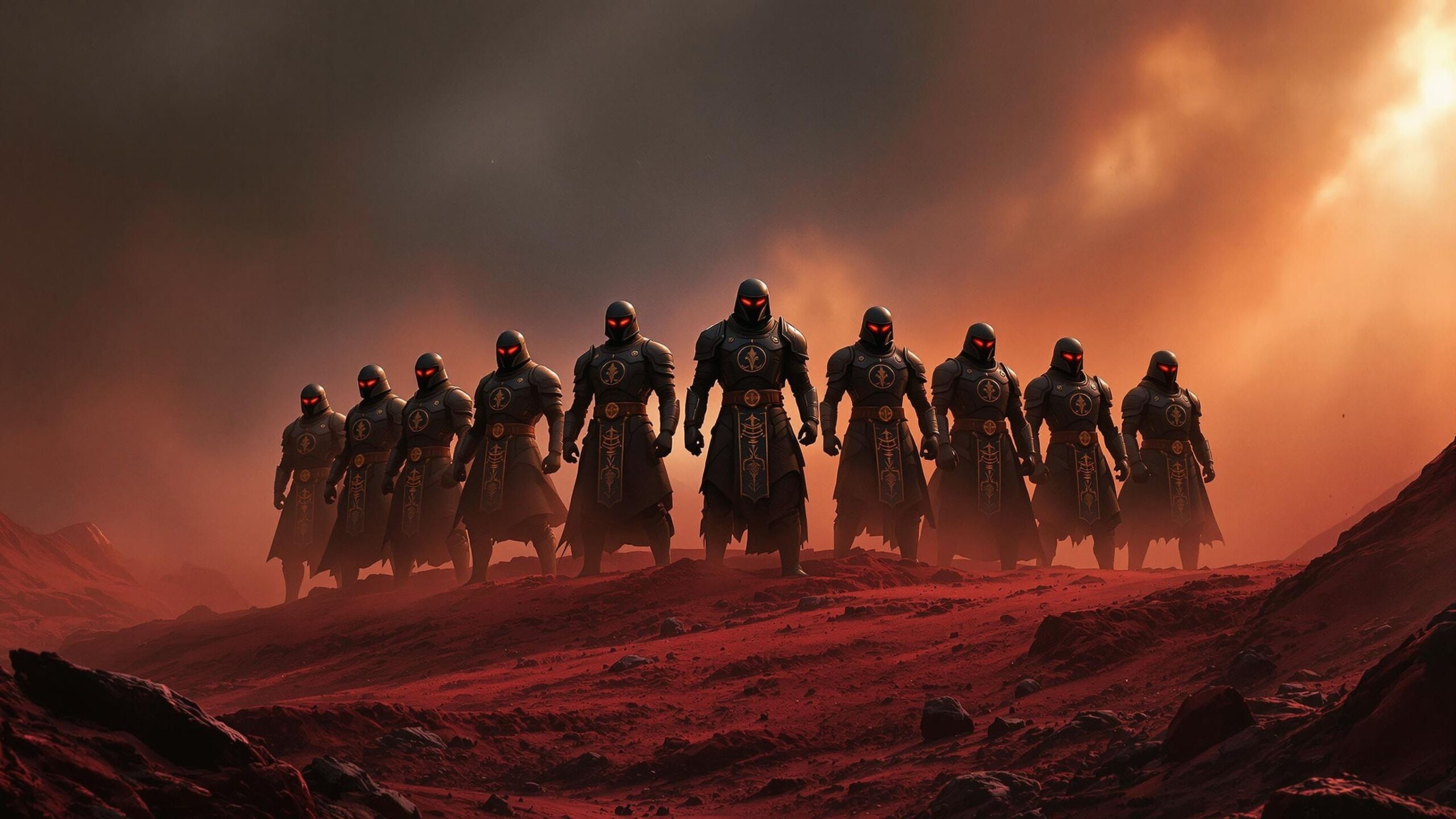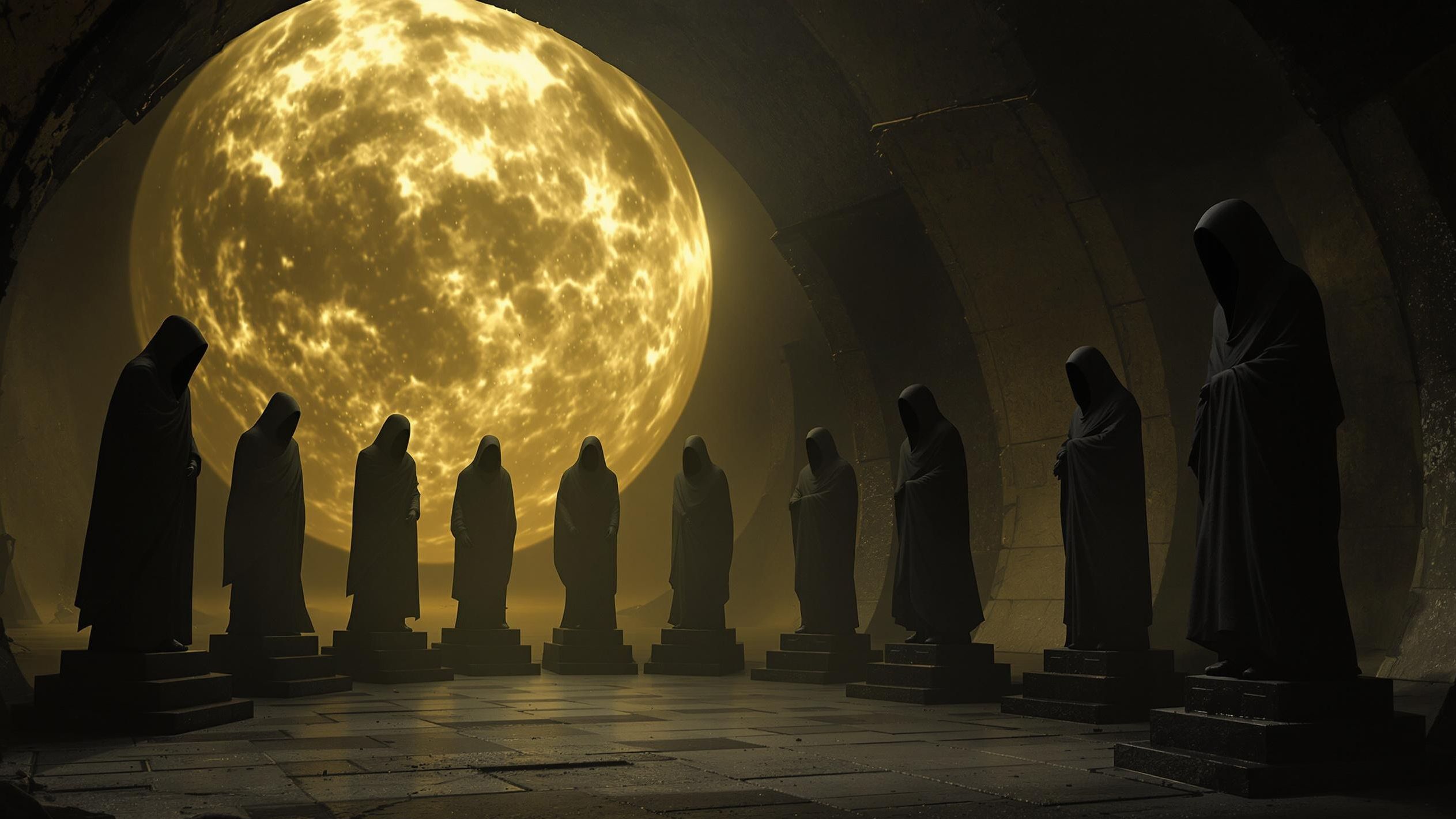Few names in science fiction history evoke terror, cunning, and cold-blooded ambition quite like House Harkonnen. Known for their cruelty, manipulation, and unchecked lust for power, the Harkonnens serve as the perfect dark mirror to the noble Atreides. With roots stretching deep into the brutal political ecosystem of the Dune universe, this list explores the ten most ruthless members of this infamous Great House. From sadistic tyrants to calculating schemers, each Harkonnen on this list left a legacy soaked in blood, betrayal, and ambition.
#10: Captain Aramsham
A loyal Harkonnen commander during the initial occupation of Arrakis, Captain Aramsham operated under the infamous Glossu Rabban and represented the House’s willingness to use military force to assert dominance. Though not as intellectually cunning as other Harkonnens, Aramsham’s brutality and blind allegiance made him a valuable tool in Rabban’s oppressive rule. Known for torturing Fremen captives and executing suspected sympathizers without trial, Aramsham’s tactics were designed to sow fear and compliance. However, his effectiveness was undercut by his impulsiveness—his eagerness for immediate violence often led to strategic miscalculations. What sets Aramsham apart is not his ambition but his unwavering belief in Harkonnen supremacy, to the point of sacrificing his own troops if it meant upholding Rabban’s authority. His demise during the Fremen uprising was as violent as his career, but his actions remain a chilling reminder of the depth of House Harkonnen’s cruelty at every level of command.
#9: Abulurd Harkonnen
Abulurd’s inclusion might seem controversial, given that he was the black sheep of the family who refused to engage in the sadistic excesses of his kin. However, it was precisely his defiance of Harkonnen methods that led to a particularly ruthless fate at the hands of his relative, Baron Vladimir Harkonnen. Assigned to rule the planet Lankiveil, Abulurd sought reform and decency, showing mercy to the native population—an unforgivable sin in the eyes of the Baron. Vladimir had Abulurd disgraced and stripped of his title, and some accounts imply he orchestrated his downfall through political sabotage and even hints of assassination. While Abulurd himself may not have been cruel, his tragic story highlights the ruthlessness of Harkonnen leadership: destroy even your own blood if they betray your image. His son, later known as Count Fenring’s confidant and ancestor to future players in the Harkonnen legacy, inherited the trauma of this family betrayal. Abulurd’s downfall is a testament to how deep the House’s venom runs.
#8: Farad’n Corrino (a.k.a. Harq al-Ada)
Though not born a Harkonnen by name, Farad’n’s maternal bloodline ties him to the Harkonnens through Lady Margot Fenring, herself a Harkonnen descendant. Groomed to be a political weapon, Farad’n was enmeshed in conspiracies that echoed his family’s darkest traits. His role in the assassination plots against Paul Atreides and later the attempted usurpation of Leto II’s rule marks him as a cunning and flexible political player. His ruthlessness lay in his adaptability—he could pivot allegiances if it meant survival or power. Though he ultimately married Ghanima Atreides and swore loyalty to the Golden Path, his early life was shaped by the manipulative and shadowy instincts of the Harkonnen line. His intelligence and psychological agility, rather than physical cruelty, made him a dangerous figure. His arc reflects the evolution of Harkonnen ruthlessness into a more subtle, insidious form, blending diplomacy with silent ambition.
#7: Captain Nefud
A seemingly minor character in Dune, Captain Iakin Nefud stood as the head of Baron Harkonnen’s personal guard, trusted with carrying out orders that required utmost discretion and brutality. A sycophantic servant to the Baron, Nefud’s loyalty was earned not through principle, but through fear and drugs—specifically his addiction to semuta, which the Baron controlled. Nefud served as both jailer and executioner, overseeing many of the Baron’s private atrocities. What makes Nefud notably ruthless is his lack of agency combined with a total willingness to enforce cruelty if it secured his position and drug supply. His willingness to turn on others, including Harkonnen allies, when the Baron commanded it, demonstrates his moral emptiness. Nefud’s story is a haunting glimpse into how House Harkonnen corrupted even the most unremarkable individuals into pawns of horror.
#6: Feyd-Rautha Harkonnen
The “Golden Boy” of House Harkonnen, Feyd-Rautha was raised to be both a public icon and a deadly tool of conquest. Beneath his charisma and classical beauty lay a mind capable of great cruelty. He performed staged gladiator fights for propaganda but ensured they were rigged for maximum bloodshed. Trained by the Baron to be both a killer and a political seducer, Feyd’s ambition matched his brutality. He plotted to assassinate his uncle, poison rivals, and manipulate Bene Gesserit genetics for power. He was also fully aware of the atrocities carried out under Rabban’s rule—atrocities he would later exploit to appear as a “merciful” successor. His duel with Paul Atreides is iconic, but his legacy is defined more by what he could have done had he succeeded. His cold calculation and thirst for glory show that the Harkonnen evil was evolving into something even more dangerous: charm wrapped in carnage.
#5: Glossu Rabban
Nicknamed “The Beast,” Rabban was entrusted with the rule of Arrakis and given carte blanche to oppress its people. His tyranny was legendary—he overtaxed, starved, and executed with impunity. Unlike his cousin Feyd, Rabban lacked subtlety; his rule relied on terror alone. His grotesque strength and brutal tactics made him a blunt instrument of the Baron’s long-term strategy: rule through fear until the people begged for Feyd’s softer tyranny. Rabban’s downfall came not through rebellion alone, but through his own failures as a leader. He alienated allies, misunderstood the power of the Fremen, and failed to control spice production. His death was less poetic justice and more the inevitable implosion of Harkonnen hubris. Glossu Rabban embodies the old-school brutality of the Harkonnens—unthinking, excessive, and self-destructive.
#4: Lady Margot Fenring
A Bene Gesserit agent and wife of Count Hasimir Fenring, Margot carried the bloodline of House Harkonnen and the cold ambition to further its goals through more subtle means. Assigned to seduce Feyd-Rautha and bear his child as part of the Bene Gesserit breeding program, Margot’s actions—though cloaked in mystery—show a commitment to manipulation at the genetic level. She was instrumental in planting hidden suggestions into Feyd’s mind, essentially using psychological programming as a weapon. Her ruthless legacy is not through open violence but through long-term manipulation and breeding—bringing into the world characters who would later shape galactic politics. Her subtlety, sharp mind, and icy resolve make her one of the most quietly dangerous Harkonnens ever to walk the halls of power.
#3: Count Glossu Rabban the Elder
The namesake and ancestor of the more infamous “Beast Rabban,” the original Glossu Rabban was just as brutal in his own right. Known in early Dune lore for military conquest and setting the Harkonnen standard for governance through domination, he pioneered many of the sadistic traditions that became institutionalized within the family. His personal campaigns against rebel territories were marked by mass executions and ritualized punishment of political dissenters. While lesser known, his impact was foundational, embedding fear into the very structure of House Harkonnen politics. His reputation for torment and totalitarian control would echo through generations, setting the standard for cruelty that Vladimir and others would elevate to art.
#2: Count Hasimir Fenring
Though not a Harkonnen by name, Fenring married into the bloodline and proved himself a silent killer whose effectiveness made even the Emperor cautious. Described by Herbert as a “failed Kwisatz Haderach,” Fenring’s physical limitations were outweighed by his lethal intellect and assassin’s finesse. Operating in shadows, he orchestrated political shifts, assassinated rivals, and maneuvered events like a puppeteer. His most chilling trait was his calm, almost gentle demeanor, which masked a mind trained to exploit, poison, or terminate threats. His loyalty to Shaddam IV meant working against Atreides interests—and by extension, upholding Harkonnen ambitions. Fenring reminds us that some of the most dangerous Harkonnens didn’t swing swords—they whispered and waited.
#1: Baron Vladimir Harkonnen
The undisputed architect of Harkonnen infamy, Baron Vladimir was a grotesque genius of tyranny, sadism, and manipulation. Obese to the point of requiring suspensor devices to float, the Baron’s physical excess matched his moral depravity. He orchestrated the downfall of House Atreides, manipulated imperial politics, and shaped his nephews into weapons of conquest. His cruelty extended into the psychological, taking pleasure in tormenting victims both physically and mentally. Notable quotes like “He who controls the spice, controls the universe” show his understanding of power as both currency and addiction. The Baron’s ability to turn fear into loyalty and death into spectacle marks him as not just ruthless, but monstrous. His legacy shaped the events of Dune for generations, leaving behind a scar on the universe that even Paul Atreides struggled to heal.
House Harkonnen’s legacy is one of cruelty cloaked in ambition. From brute enforcers to master manipulators, their tactics varied—but their goal never changed: absolute power. The individuals on this list reveal the many faces of ruthlessness—some through bloodshed, others through whispers. Their dark legacy helped shape the rise of Paul Atreides, the fall of empires, and the long shadow that hangs over the Dune saga.




